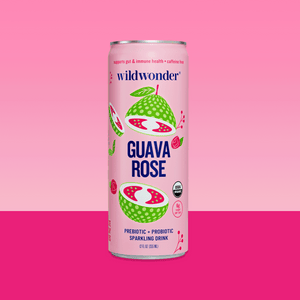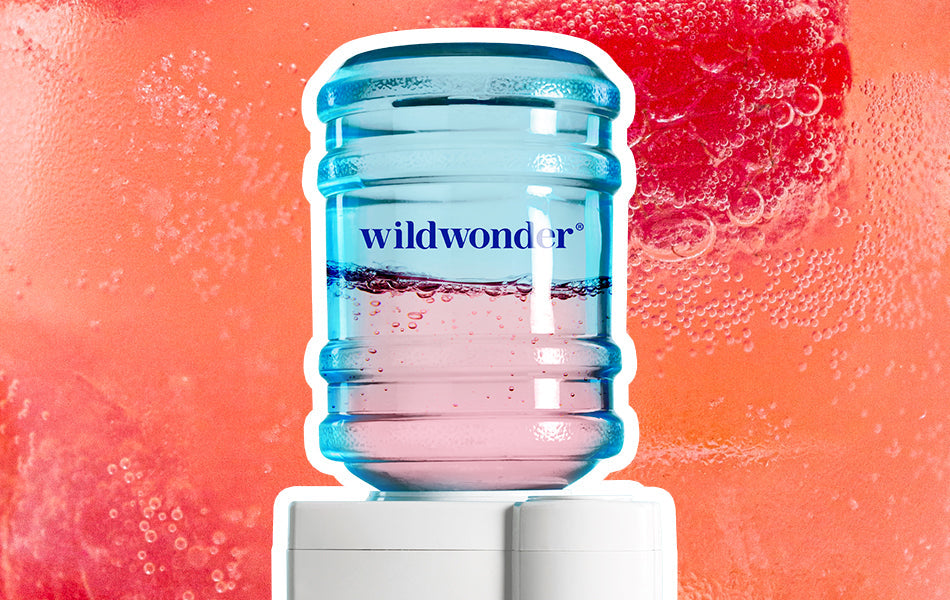Probiotics have become a popular topic in health and wellness conversations, and for good reason. These beneficial bacteria play a critical role in maintaining a healthy gut, which in turn impacts numerous aspects of overall well-being. Certain probiotic strains are known to offer specific health benefits, such as improving lipid profiles and supporting urinary health. For men, the right probiotics may support digestion, boost immune function, and even contribute to hormonal balance and fertility. Science shows that these tiny microorganisms can be powerful allies in optimizing your health.
With so many options on the market, finding the best probiotic for your specific needs can feel overwhelming. That’s why we’ve compiled this evidence-based guide for the top probiotics tailored for men. Whether your goal is to improve digestion, enhance energy levels, or support overall wellness, this article will provide the insights you need to make an informed choice. Stay tuned as we break down the benefits and key features of each option to help you select the perfect fit for your lifestyle.
Understanding Probiotics and Men's Health
What Are Probiotics and How Do They Work?
Probiotics are live microorganisms, often referred to as “good” or “friendly” bacteria, that provide health benefits when consumed in the right amounts. They naturally reside in the gastrointestinal tract and help maintain its health by promoting a balanced microbiome, which is crucial for digestion, nutrient absorption, and even supporting the immune system.
Probiotics work by promoting the growth of beneficial bacteria in the gut while keeping harmful bacteria in check. You can find them in foods like yogurt, kefir, and fermented vegetables, as dietary supplements, or in certain functional beverages like wildwonder. By keeping your gut healthy, probiotics play a big role in overall well-being!
The Microbiome and Male Health Connection
The connection between the microbiome and male health is a fascinating and growing area of research. For men, maintaining a healthy microbiome may support testosterone levels, improve energy, and reduce the risk of conditions like heart disease and inflammation.
Key Benefits of Probiotics Specifically for Men
There are certain benefits men may experience when they incorporate certain probiotics in their diet.
Digestive and Gut Health
Probiotics can play a major role in maintaining gut health by supporting a balanced microbiome. They help improve digestion, reduce bloating, and even combat common issues like constipation or diarrhea. A healthy gut means feeling good from the inside out.
Urinary Tract and Prostate Support
For men, probiotics may contribute to the health of the urinary tract and prostate. By fostering good bacteria, these supplements can help reduce the risk of infections and support prostate health as part of an overall wellness routine.
Fertility and Reproductive Health
Probiotics have also been linked to supporting reproductive health. They may assist with hormone balance and sperm quality, which are important factors when focusing on fertility. Certain probiotics can benefit male fertility by improving sperm concentration and motility.
Immune System Function
A strong immune system is essential for staying healthy, and probiotics can give it the boost it needs. They help promote the production of antibodies and strengthen the body's natural defenses, helping to ward off illness.
Body Composition and Weight Management
Certain strains of probiotics can assist with weight management by influencing how your body processes fat and calories. They may also help regulate appetite and metabolism, making it easier to maintain a healthy lifestyle.
Cognitive Function
Gut health is closely connected to brain health, thanks to the gut-brain axis. Probiotics may help reduce stress and support cognitive function, ultimately contributing to clearer thinking and an improved mood.
Top Probiotic Strains Beneficial for Men
Lactobacillus Strains
-
L. acidophilus: A staple for digestive health.
-
L. rhamnosus: Known for immune support and reducing inflammation.
-
L. casei: Aids digestion and supports respiratory health.
-
L. plantarum: Supports intestinal health and reduces gas and bloating.
-
L. gasseri: Shown to help manage body weight and reduce visceral fat, with clinical trials indicating significant benefits from consuming fermented milk containing Lactobacillus gasseri.
Bifidobacterium Strains
-
B. longum: Supports immunity and digestion.
-
B. breve: Promotes balance in the gut and may reduce body fat.
Other Beneficial Strains
-
L. fermentum, L. brevis, and L. gasseri all offer digestive and immune support, and may support male fertility.
The 10 Best Probiotic Supplements for Men
Here are our top 10 best picks for probiotic supplements for men:
Best Overall: Hyperbiotics PRO-15
Hyperbiotics PRO-15 is highly regarded for its time-release formula, which ensures gradual delivery of probiotics throughout the day for maximum effectiveness. It also boasts a high CFU count and an impressive range of diverse strains, making it suitable for supporting overall gut health and digestion.
Best for Men Over 50: Garden of Life Dr. Formulated Probiotics
Specifically designed for men over 50, this probiotic offers targeted support for prostate and colon health, areas of concern for many men as they age. It contains carefully selected strains to promote not just digestive health but also urinary health and immune system function.
Best for Digestive Health: Culturelle Digestive Daily
Culturelle Digestive Daily contains the clinically proven strain L. rhamnosus GG, which is known to reduce digestive discomfort and promote a balanced gut microbiome. It is an excellent choice for individuals who experience bloating, gas, or irregular bowel movements.
Best for Prostate Health: NOW Probiotic-10
NOW Probiotic-10 includes a blend of probiotic strains that have been studied for their potential benefits for urinary and reproductive health. This makes it a great option for men seeking to proactively support their prostate and overall wellness.
Best for Fertility: Florastor Daily Probiotic
Florastor Daily Probiotic contains Saccharomyces boulardii, a unique probiotic strain that may support reproductive health by encouraging a balanced gut environment. This strain is also known for its ability to enhance nutrient absorption, a vital factor for overall wellness and fertility.
Best for Weight Management: BioSchwartz Advanced Strength
BioSchwartz Advanced Strength not only delivers a potent dose of probiotics but also includes prebiotic fiber to aid in appetite control. This combination supports a healthy metabolism, while also reducing cravings and promoting feelings of fullness.
Best for Immune Support: Renew Life Ultimate Flora
Renew Life Ultimate Flora provides a high CFU count and a specialized formula aimed at strengthening the immune system. By supporting the gut microbiome, it helps to enhance immune resilience and fight off common illnesses more effectively.
Best Budget-Friendly: Nature’s Bounty Probiotic 10
Nature’s Bounty Probiotic 10 is an affordable option that doesn’t compromise on quality. It offers reliable performance with 20 billion CFUs and 10 probiotic strains, making it a suitable choice for everyday gut health at a wallet-friendly price.
Best High-Potency: VSL#3
VSL#3 stands out for its clinically studied formula, which contains over 100 billion CFUs per serving. It is ideal for individuals who require a high-potency probiotic to address specific gut health concerns, such as severe dysbiosis or complex digestive issues.
Best for Sensitive Stomachs: Jarro-Dophilus EPS
Jarro-Dophilus EPS is formulated to be gentle yet effective, making it perfect for those with sensitive stomachs. Its shelf-stable design and inclusion of diverse strains further ensure that it provides consistent and balanced support for digestive health without causing discomfort.
How to Choose a Quality Probiotic for Men
Here are some tips to keep in mind when choosing a quality probiotic for men:
Understanding CFU Count
When choosing a probiotic supplement, pay attention to the CFU (colony-forming units) count. Aim for products that offer at least 10–50 billion CFUs per serving, as this range is often considered optimal for delivering noticeable benefits. A higher CFU count can support a robust and balanced gut microbiome, but balance is essential—extremely high counts aren’t always necessary unless recommended by a healthcare professional.
Evaluating Strain Diversity
Not all probiotic strains are created equal, and each offers unique health benefits. To support overall gut health, look for supplements with a variety of bacterial strains. Selecting products with specific strains can address individual health needs, ensuring your gut receives full-spectrum support—addressing digestion, immunity, and other critical functions. Common strains include Lactobacillus and Bifidobacterium species, which are widely studied for their efficacy.
Looking for Third-Party Testing
Transparency is key when selecting a probiotic. Always choose reputable brands that prioritize third-party testing to verify the potency and purity of their products. This ensures you’re getting a safe, high-quality supplement free from contaminants, and it confirms the label accurately reflects what’s in the product.
Guaranteed Potency Through Expiration
Probiotics are live organisms, but their potency can decline over time. To ensure you’re getting maximum benefits, opt for products that guarantee the listed CFU count through the expiration date. Steer clear of supplements where potency decreases before you finish the package.
Delivery System and Survivability
The effectiveness of a probiotic relies on its ability to survive harsh stomach acid and reach the intestines alive. Look for supplements with advanced delivery systems, such as delayed-release capsules or spore-based probiotics, as these are more likely to survive and provide benefits where they are needed most.
Additional Beneficial Ingredients
Some probiotics include extra ingredients like prebiotics, which act as food for the probiotic strains, or added vitamins and minerals for enhanced wellness. These complementary components can amplify the overall health benefits, so consider products with these value-adding ingredients for an extra boost.
Choosing the Best Probiotic Supplements for Men
Criteria and Considerations for Selection
When selecting a probiotic supplement, there are several factors to consider to ensure you choose a high-quality product that meets your needs. Here are some key criteria and considerations to keep in mind:
-
Strains and Species: Look for a probiotic supplement that contains multiple strains of beneficial bacteria, such as Lactobacillus acidophilus, Lactobacillus plantarum, and Bifidobacterium bifidum. Different strains have different benefits, so a multi-strain product can provide a broader range of health benefits.
-
CFU Count: Choose a probiotic supplement with a high CFU (colony-forming unit) count, which indicates the number of live bacteria in the product. A higher CFU count generally means a more effective product, as it ensures a sufficient number of beneficial bacteria reach your gut.
-
Expiration Date: Make sure the product has a clear expiration date or “best by” date to ensure the bacteria are still alive and effective. Probiotics are live organisms, and their potency can diminish over time.
-
Third-Party Testing: Look for products that have been tested by third-party organizations, such as NSF International or ConsumerLab.com, to ensure the product meets its label claims. Third-party testing provides an extra layer of assurance regarding the quality and efficacy of the probiotic supplement.
-
Manufacturer Reputation: Research the manufacturer’s reputation and look for products from well-established companies with a history of producing high-quality probiotics. A reputable manufacturer is more likely to adhere to stringent quality control standards.
-
Label Claims: Be wary of products with exaggerated label claims or those that promise unrealistic benefits. Look for products with clear, scientifically-supported claims that align with your health goals.
-
Allergen Concerns: If you have allergies or sensitivities, look for products that are free from common allergens such as gluten, dairy, or soy. This ensures that the probiotic supplement is safe for you to consume.
- Storage and Handling: Consider the storage and handling requirements for the product, such as refrigeration or freezing, to ensure the bacteria remain alive and effective. Proper storage is crucial for maintaining the potency of the probiotics.
By considering these factors, you can choose a high-quality probiotic supplement that meets your needs and provides the benefits you’re looking for. A well-chosen probiotic can support your gut health, boost your immune system, and enhance your overall well-being.
Natural Sources of Probiotics for Men
Adding fermented foods to your daily meals can do wonders for your overall health. These foods are teeming with beneficial bacteria, enhancing gut health and supporting a strong immune system. Here’s a closer look at some popular choices:
Sauerkraut and Kimchi
These tangy, flavorful foods are made from fermented cabbage and other vegetables. Packed with probiotics, they help balance the gut microbiome, which plays a key role in digestion and immunity. Plus, their bold flavors can elevate simple dishes, making them both healthy and delicious.
Kefir and Yogurt
As a source of probiotics, kefir and yogurt are fantastic options to nourish your gut. They’re not only great for digestion but can also help support bone health, thanks to their high calcium content.
Other Options to Explore
If you’re looking for more variety, consider options like miso, tempeh, or naturally fermented pickles (those made without vinegar). Miso, a fermented soybean paste, adds a savory burst of flavor to soups and marinades. Tempeh, also made from fermented soybeans, is a protein-packed alternative for vegetarians and vegans. Naturally fermented pickles bring a satisfying crunch and gut-healthy probiotics to any meal. Fermented foods like these contain beneficial microbes that support gut health, making them an excellent addition to your diet.
Timing Your Probiotic Consumption
To get the most out of your probiotics, it's best to take them on an empty stomach, ideally in the morning. This helps increase their survivability as they make their way through your digestive system. Starting your day with probiotics can set the stage for better digestion and improved gut health throughout the day. Pair this habit with plenty of water to support the friendly bacteria in doing their job.
Creating a Balanced Probiotic Routine
Consistency is key when it comes to maintaining a healthy gut. To enhance the benefits of your probiotics, consider combining them with probiotic-rich foods while also incorporating prebiotics (fibers that are fuel for prebiotics), such as bananas, garlic, or oats, into your meals. This combination fuels the healthy bacteria in your system, helping them thrive and work effectively.
The Importance of Prebiotics: Fueling Your Probiotics
What Are Prebiotics and Why Are They Essential?
Prebiotics are a special type of dietary fiber that act as food for the beneficial bacteria in your gut. Think of them as the fuel your probiotics need to do their job effectively. Without prebiotics, those helpful bacteria can’t thrive as well, which may limit their positive effects on your digestion and overall health. Prebiotics can be found in everyday foods like bananas, onions, garlic, leeks, and whole grains. Incorporating these ingredients into your meals is an easy and natural way to support your gut microbiome. By consistently pairing prebiotics with probiotics, you create an ideal environment for boosting immune function, improving digestion, and enhancing nutrient absorption. Additionally, prebiotics help probiotics produce short chain fatty acids, which play a crucial role in inhibiting pathogenic microorganisms, improving gut health, and influencing the overall composition of the gut microbiota.
Top Prebiotic-Rich Foods for Men
-
Garlic
-
Onions
-
Bananas
How wildwonder’s Prebiotic Beverages Complement Your Probiotic Intake
Wildwonder’s sparkling drinks are a delicious, daily way to nourish your gut. Every can combines prebiotic fiber, live probiotics, and superherbs to support digestion, mood, and overall wellness—perfect as a complement to your daily probiotic supplement.
Explore our flavors and learn more about the power of prebiotic soda.
Dietary Supplements and Gut Health
Integrating Probiotics with Other Supplements
Probiotics can be a valuable addition to a comprehensive supplement regimen, but they can also be integrated with other supplements to enhance their benefits. Here are some ways to integrate probiotics with other supplements:
-
Prebiotics: Prebiotics are non-digestible fibers that feed the good bacteria in the gut, helping them grow and thrive. Taking prebiotics with probiotics can enhance the benefits of probiotics and support a healthy gut microbiome. Foods rich in prebiotics include bananas, garlic, and oats.
-
Vitamins and Minerals: Certain vitamins and minerals, such as vitamin D and calcium, can support the health of the gut microbiome. Taking these nutrients with probiotics can enhance their benefits and support overall health. For example, vitamin D is known to play a role in immune system support, which can complement the immune-boosting effects of probiotics.
-
Omega-3 Fatty Acids: Omega-3 fatty acids, particularly EPA and DHA, have anti-inflammatory properties that can support gut health. Taking omega-3s with probiotics can enhance their benefits and support overall health. Omega-3s can be found in fish oil supplements and certain plant-based oils.
- Digestive Enzymes: Digestive enzymes, such as amylase, lipase, and protease, can support the digestion and absorption of nutrients. Taking digestive enzymes with probiotics can enhance their benefits and support overall health. Digestive enzymes help break down food more efficiently, allowing probiotics to work more effectively in the gut.
When integrating probiotics with other supplements, it’s essential to consider the potential interactions and synergies between the different nutrients. Always consult with a healthcare professional before adding new supplements to your regimen. This ensures that you are taking the right combination of supplements to support your gut health and overall well-being.
Maximizing Gut Health Through Supplementation
While probiotics can be a valuable addition to a comprehensive supplement regimen, there are other ways to support gut health through supplementation. Here are some additional strategies to consider:
-
Gut-Soother Supplements: Supplements like slippery elm, marshmallow root, and licorice root can help soothe and calm the gut, reducing inflammation and supporting healing. These natural remedies have been used for centuries to support digestive health and can complement the effects of probiotics.
-
Gut-Healing Supplements: Supplements like L-glutamine, zinc, and vitamin C can support the healing and repair of the gut lining, reducing inflammation and improving nutrient absorption. L-glutamine, in particular, is an amino acid that plays a crucial role in maintaining the integrity of the gut lining.
- Microbiome-Supporting Supplements: Supplements like polyphenols, flavonoids, and other plant compounds can support the growth and diversity of the gut microbiome, enhancing its benefits and supporting overall health. These compounds are found in a variety of fruits, vegetables, and herbs and can be taken as dietary supplements.
By incorporating these strategies into your supplement regimen, you can maximize the benefits of probiotics and support overall gut health and well-being. Always consult with a healthcare professional before adding new supplements to your regimen. This ensures that you are taking the right combination of supplements to support your gut health and overall well-being.
Potential Side Effects and Considerations
Common Initial Side Effects
When starting probiotics, it’s not uncommon to experience mild bloating, gas, or other digestive changes. These are usually temporary and simply reflect your body adjusting to the new influx of healthy bacteria.
When to Consult a Healthcare Professional
While probiotics are safe for most people, certain circumstances call for professional guidance. If you have a weakened immune system, are pregnant, or are taking medications, it’s essential to consult your doctor before starting a probiotic regimen. A healthcare provider can help you choose the best option for your specific needs and ensure it’s safe to incorporate into your routine. Additionally, consulting health care providers is crucial for personalized probiotic recommendations, especially considering potential risks and FDA concerns.
Probiotics and Medication Interactions
Probiotics can occasionally interact with some medications, particularly antibiotics and immunosuppressants. Antibiotics, for instance, can disrupt the bacterial balance in your gut, and certain probiotics can help mitigate this. Always check with your healthcare provider to clarify potential interactions and ensure probiotics will complement your medication plan.
Building Tolerance Over Time
If you’re new to probiotics, starting with a lower dose can help your body ease into the transition. Gradually increasing the dosage over time allows your gut to adapt and reduces the likelihood of side effects. This slow and steady approach can help you build tolerance and enjoy the full benefits of probiotics without unnecessary discomfort.
Conclusion: Creating Your Personalized Probiotic Strategy
The best probiotics for men do far more than just promote gut health; they can positively influence your immune system, support fertility, and even enhance mental clarity. Probiotics also offer potential health benefits, including improvements in conditions such as atopic dermatitis, digestive disorders, and obesity. When building a probiotic strategy, it may be helpful to start by finding a high-quality probiotic supplement that suits your needs. Pair this with fermented foods like yogurt, sauerkraut, or kimchi, which are packed with natural probiotics, and don’t forget to include prebiotics like bananas, garlic, or oats in your diet. Prebiotic drinks like wildwonder can also provide an easy and delicious way to nourish your gut bacteria conveniently and deliciously. By combining these elements into a sustainable routine, you’ll be giving your gut, and your entire body, the care it needs to thrive. Remember, a healthy gut is the foundation of overall well-being, and with a little effort, you can build a probiotic plan that works just for you.
FAQs about the Best Probiotics for Men
Do men need different probiotics than women?
Yes. While some strains are universally beneficial, others support male-specific health concerns like fertility, prostate health, and testosterone balance.
How long does it take for probiotics to work for men?
Many men notice benefits after taking probiotics consistently within a few days to weeks, but it may take up to 1–2 months for full effects. The key is to take the right quantity and to consume them every single day.
Can probiotics increase testosterone levels in men?
Some early studies suggest that gut health may play a role in hormone balance, including testosterone.
When is the best time to take probiotics for maximum effectiveness?
Typically the best time to take probiotics is in the morning on an empty stomach, or 30 minutes before a meal. But times may vary based on the probiotic.
Need an easy, flavorful way to support your gut health every day? Try wildwonder—a sparkling, feel-good drink packed with prebiotics, probiotics, and botanicals to help you feel your best from the inside out.
 Shark Tank Bundle
Shark Tank Bundle
 Classic Variety Pack
Classic Variety Pack
 Very Berry Variety Pack
Very Berry Variety Pack
 Rosa's Favorite Variety Pack
Rosa's Favorite Variety Pack
 Cherry Lemonade
Cherry Lemonade
 Raspberry Lychee
Raspberry Lychee
 Strawberry Passion
Strawberry Passion
 Pineapple Paradise
Pineapple Paradise
 Guava Rose
Guava Rose
 Mango Gold
Mango Gold
 Blackberry Violet Gift Set
Blackberry Violet Gift Set
 Blog
Blog
 Our story
Our story
 Impact
Impact

























































